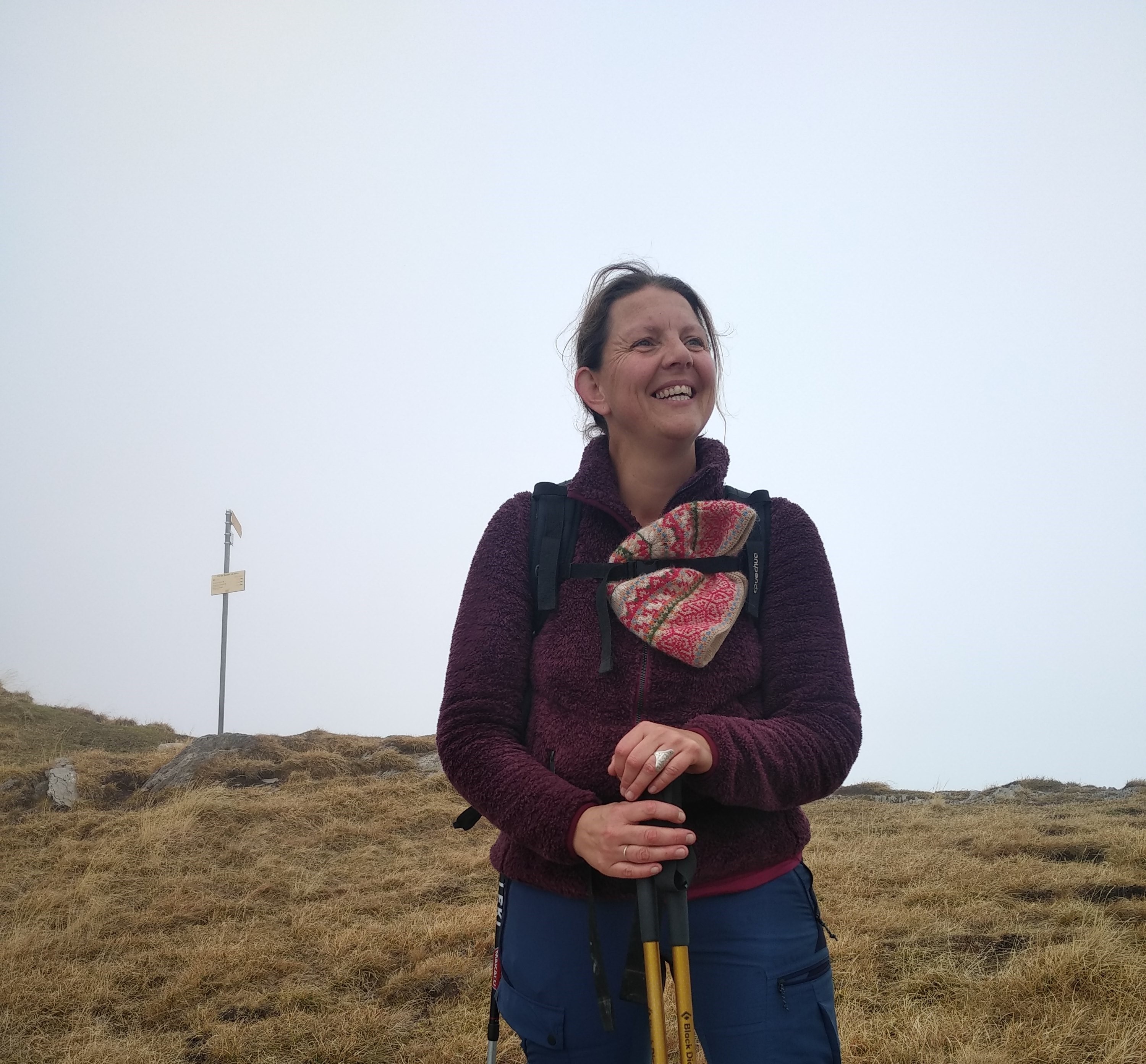Sophie created Saute Ruisseaux in 2016. As a non-profit focussing on the environment and regions, its aim is to create a link between people and their environment by giving everyone the chance to find their place in both society and our shared adventure as human beings.
What three words would you use to describe your organisation, Saute Ruisseau ?
- Humankind because each one of us has endless knowledge to share, whether we’re participants, volunteers and so on.
- Nature because this is our primary source of knowledge, bonds, action and renewal too.
- And walking because we do everything outside. None of our activities take place indoors. By promoting the outdoors and movement, mobilises our capacity for reflection, action and networking.
What activities do you offer ?
Walks to visit small-scale farmers: We take the public to the local, organic smallholdings where the farmers work. The aim is to help them learn about the role that these smallholders play in our landscape and environment. Over the long term, it’s about creating local links between people.
It’s certainly true that we work on a regional level, but because we care about the environment and looking after our staff, we concentrate our focus locally.
We want to use the La nature c’est classe (or “Nature is cool”) programme to support teachers and their pupils to learn outdoors.
We are also creating our little catalogue of activities. Our unusual walks, sometimes in partnership with craftsmen, which people can sign up for.
Who is your audience ?
There’s no one audience we target. We work as much with schoolchildren as we do with older people, including babies aged 0 to 3, middle schools and secondary schools. We use lots of different tools and lots of different channels.
What’s your role at Saute Ruisseau ?
My job title is “environment and nature educator”. But I don’t like the words “educator” or “activity leader” that much. I prefer “support worker”. The life of the Associations also leads us to the administrative and partnership. Means to implement our programme. There are two of us on the organisation’s staff and soon 3.
Have you noticed people becoming more and more excited about your activities ?
Yes, people are getting more and more excited. The children’s activities work a treat. Local representatives are calling on our services more often, asking us to guide organisations and provide extra educational support. The action we take is increasingly local, which is very interesting because we’re also getting back to our local roots.
Young people are particularly keen and motivated. Over the past couple of years, some people have been going through quite a profound change in their mindsets. It fits into the school curriculum.
Do you have an example of something you’ve done with young people you could share with us ?
We created our Nature Clubs last year. There was a young people’s council election in the Peillac local authority, and we could see from their campaigns that the candidates were more and more committed to ecology and solidarity. We can see they’ve started to get really invested. We have a responsibility, as adults in the community, to provide them with a setting where they can develop and grow. And to accompagny them in their momentum.
I find debates with young adults fascinating too. We’ve supported a farming college with their sustainable development module for a couple of years now. We guided the students through the year, and at the end, we took them to walk the Camino de Santiago. Sometimes the roles are reversed when we walk. Teenagers are passionate about questioning the world and their relationship with nature and society.
What is your relationship with nature? Why did you decide to devote yourself to it ?
I grew up on my mother’s farm deep in the countryside. Around 12/13 years, the landscape was brutally transformed as a result of major roadworks around the farm’s boundary. I knew what I wanted to do by the time I was 14.
I’ve worked in the sector in Niger and eastern France but with different approaches and focuses.
It’s impossible to extricate our activities and our health from the environment – there are no projects which aren’t about the environment in some way. It’s an endless source of inspiration infinite, and I’ve done research into nature. When you realise what nature has to offer, it dawns on you that a lifetime wouldn’t be enough to discover everything there is to know, and you became aware of our tiny place on the planet and in the universe. We’re tethered to the Earth. That’s how it is. Nature is a source of learning which has helped me understand society.
Check out the Yves Rocher Foundation 30 years celebration during the 2021 Nature en Fête edition at La Gacilly.



